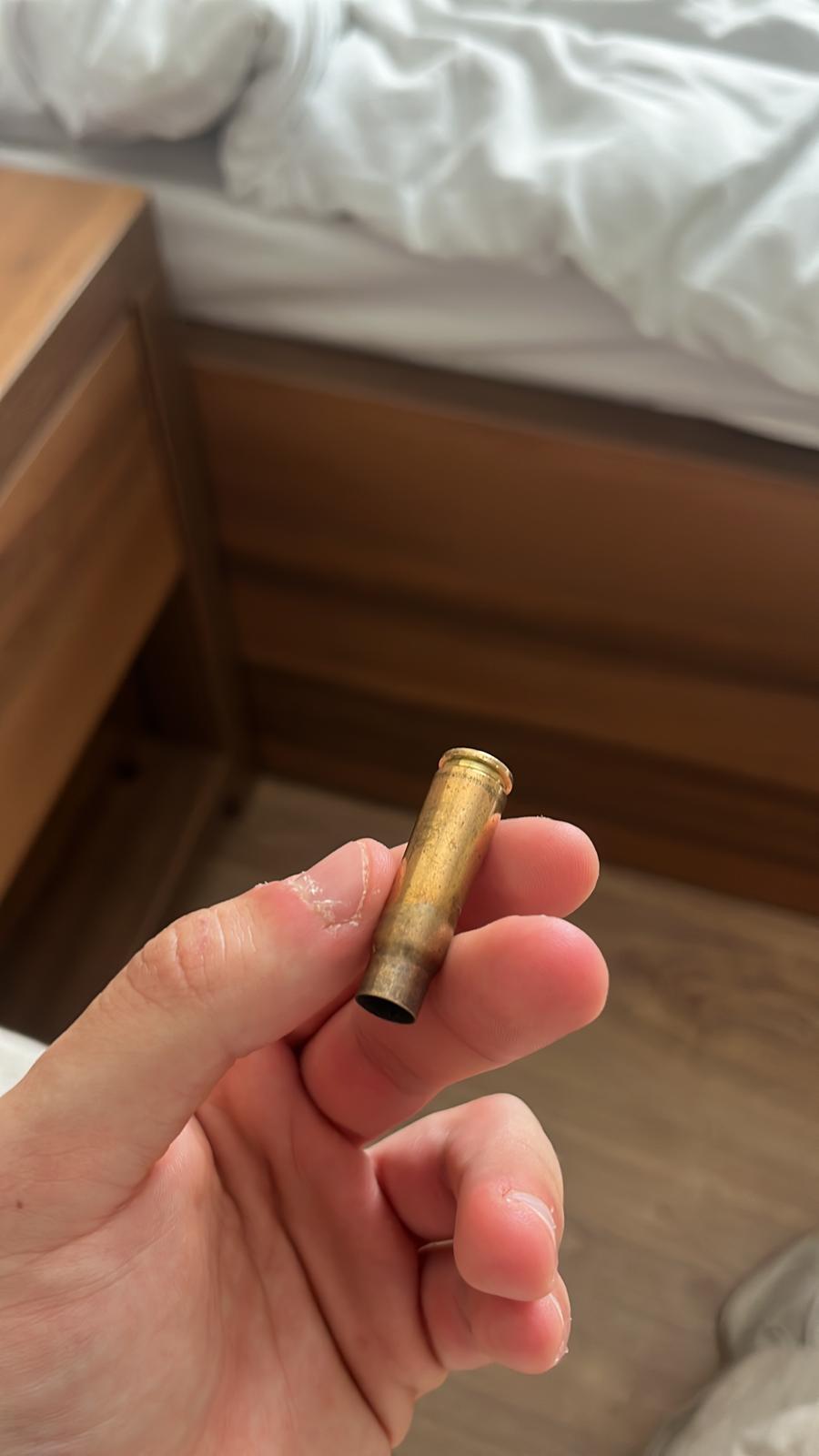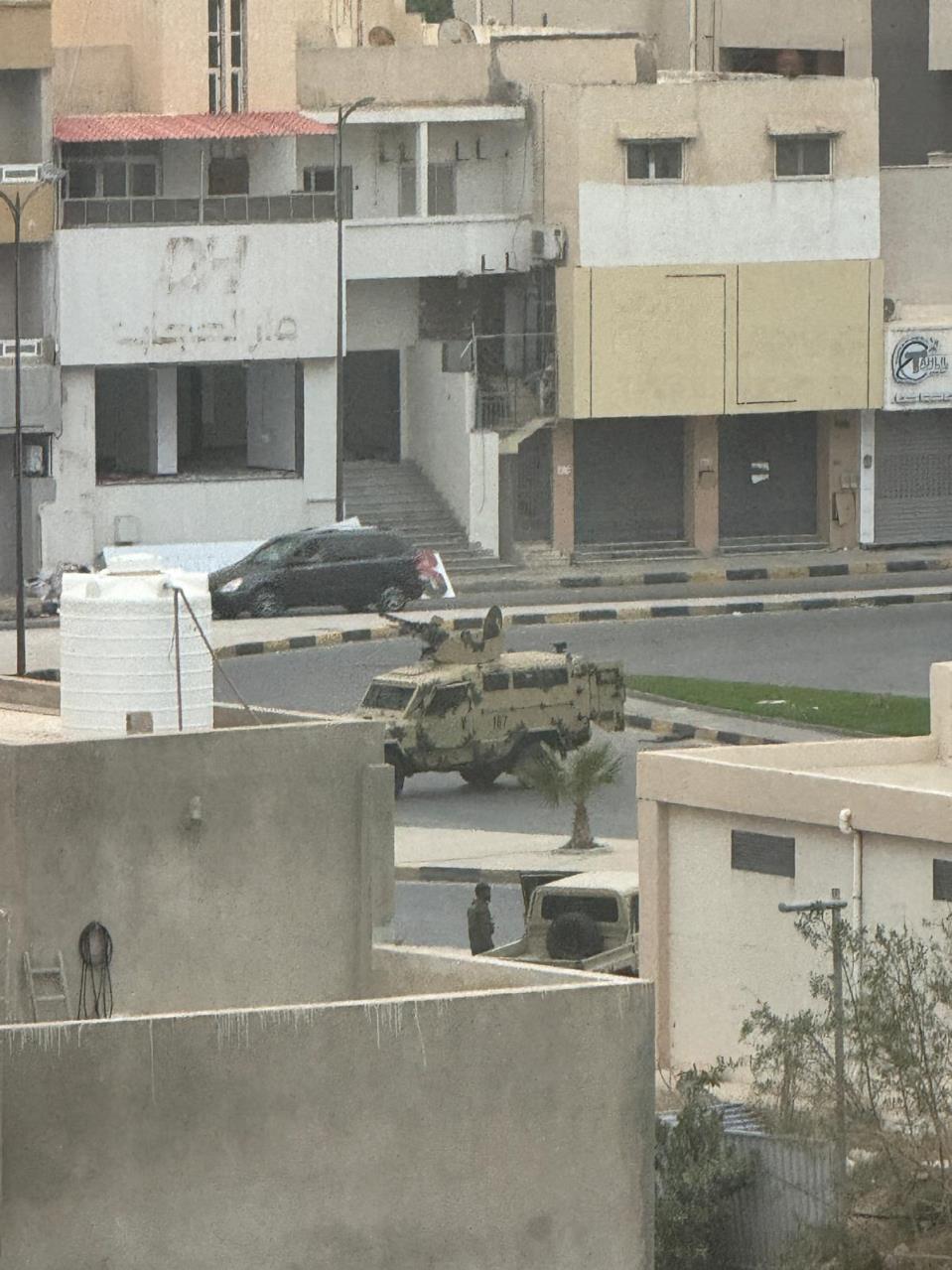Last week, Maltese youth Benjamin Farrugia, 23, was in Tripoli, Libya for a week-long business venture with his employers. This networking experience was abruptly halted as tensions between Libyan militias boiled over in the capital that same week.
Speaking to The Malta Independent, Farrugia described his experience there, and how he and 37 other Maltese were safely evacuated back to Malta.
Farrugia arrived in Tripoli on Sunday, 11 May 2025 with two of his colleagues with the intent on visiting one of the largest trade fairs in North Africa set there.
He and two of his colleagues from Seamless Surfaces were set to stay there till the following Sunday and use their time to network and see to potentially expand their business. After a productive Monday at the fair and around the capital, the worst-case scenario set in just as they were preparing to go out for dinner.
Over those few days in Tripoli, Farrugia saw large clouds of smoke rising from the destruction on the ground, many destroyed cars, "massive bullet holes" in the sides of surrounding vehicles, walls of houses, and other buildings, as well as the ground outside being coated with used ammunition.
He said that surrounding buildings were not just hit by the firing of machine guns, but some were also left with gaping holes breaking through their façades.
He was informed that the shooting was just two roads away from his accommodation at one point, as one of the targeted figureheads of a militia was based in an office very close by. While he did not directly see any of the shooting with his own eyes, nor any cadavers left from the violence, he heard nonstop gunfire throughout the night.

Throughout these warring nights, Farrugia and company were peeking from outside their windows, behind their closed curtains, to check on the situation on the streets.
At around 8pm that Monday evening, Farrugia was getting ready to head out to a restaurant for dinner when he received a phone call from his boss to stay indoors. It was during this same phone call that he first heard gunfire outside.
The realisation that they were stuck in the Libyan capital, in the middle of this re-emerged warfare, set in shortly after safely meeting his colleagues, when they quickly saw on the news that Tripoli International Airport had been closed and that airplanes parked there were being transferred to another airport.
At around 8pm that Monday evening, Farrugia was getting ready to head out to a restaurant for dinner when he received a phone call from his boss to stay indoors. It was during this same phone call that he first heard gunfire outside.
The realisation that they were stuck in the Libyan capital, in the middle of this re-emerged warfare, set in shortly after safely meeting his colleagues, when they quickly saw on the news that Tripoli International Airport had been closed and that airplanes parked there were being transferred to another airport.
Farrugia told this newspaper that the thought of something like this happening had lurked in the back of his mind while preparing for the trip, however, before the warfare broke out, he was giving himself peace of mind by assuring himself that there hadn't been fighting in the region for quite some time.
The shooting eventually subsided later that evening, granting the group some time to rest before heading out to the trade fair the next morning.
Farrugia and his colleagues were then told that it was safe to head to the fair that Tuesday morning, and so they did. However, much less people naturally showed up; due to the emerging circumstances, even workers organising the trade fair were absent that day.
Farrugia and company went out for dinner on Tuesday evening and were notified by text message to stay somewhere safe indoors as shooting would recommence.

Farrugia had replaced his phone battery just hours before the first shots commenced on Monday night after having experienced what he called a factory defect, where his phone battery was malfunctioning and dropping from full charge to 0%. The situation was handled mere hours before the tensions between Libyan militias boiled over.
The following days would have him and other Maltese stuck in the capital rely on their mobile phones for any notifications relating to when shooting was to restart and to communicate with Maltese authorities on their assisted evacuation back to Malta. In hindsight, he is thankful that his phone battery did not malfunction a day later, as he would have been left unable to communicate with anyone remotely.
They packed up their food for takeaway and rushed back to their accommodation at approximately 10pm that night. Fortunately, they made their way back to safety before any gunfire restarted.
That Tuesday night was the scariest time of the trip, he recounted.
"It broke out much stronger than the first time," he described.
At around 1am that night, the loud commotion of continuous gunfire and cannons firing non-stop reverberated through the capital city. With the constant sounds of cannons and AK-47 assault rifles firing nearby, and nearby windows repeatedly shaking from the violence occurring just outside, Farrugia and his colleagues were left helplessly ducking in their rooms, distant from their windows, and petrified that their accommodation was next to be hit.
This chaos persisted till around 11am the next morning, "continuously and non-stop."

"We weren't able to hear one shot after another; there was so much gunfire ongoing that we couldn't hear anything except for the loud commotion," Farrugia told this newspaper.
The young Maltese man recounted the fearful sensation he felt in these moments, noting the unique fear that shook him as he comprehended what being at war is truly like. He discussed the sheer difference in viewing war on the news on television and being stuck in this grave experience, noting that he feared he wouldn't be able to see his loved ones again.
Farrugia and his co-workers stayed inside their rented apartment that Wednesday, apart from one quick trip to a nearby grocer to buy food just over an hour after the gunfire halted.
He said that across those three scary nights, he only managed to sleep for around three-to-four hours; most of the time he tried to sleep, he was repeatedly awoken from either the outside shooting or by his own worry.
In the meantime, the Maltese were in communication to find other Maltese stuck in the capital, as well as with the Maltese Embassy and Colonel Alex Dalli, who is now based in Libya, who were planning their safe evacuation back to the Maltese islands.
With the riskiest part of the evacuation mission being to pass through a safe passageway within the Libyan capital, a plan was set by Maltese authorities to arrive at a meeting point at 9am, Thursday morning, and be escorted on a drive to an airport outside the city, for three and a half hours, from where they caught a flight back to Malta.
38 Maltese people were evacuated in two buses, alongside the Maltese ambassador and police. Farrugia shared that the riskiest part of the evacuation process was the first hour and a half of the drive, while they were leaving Tripoli.
"Thank God, on Thursday, the evacuation process went well - it was very well-planned," Farrugia expressed.
Farrugia and 37 other Maltese people stuck in the capital were evacuated by the Maltese authorities through a swift and successful operation carried out on Thursday morning.
Farrugia did not tell his family about this ordeal until he surprisingly arrived home on Thursday, three days earlier than expected. So as not to worry anyone, he decided to not to inform anyone but two of his closest friends about what transpired around him before returning back to Malta. He said his friends' support was vital in keeping morale high through this nightmare.
"No one expected me to come back [so early], then they found me at our doorstep," Farrugia said, describing his return home.
In memory of this ordeal, Farrugia returned home with a unique souvenir - a used bullet he picked up from the streets of Tripoli.
Since returning home, Farrugia noticed that local fireworks set off for local feasts were affecting him and reminding him of the terror he came so close to.
This was Farrugia's first experience in Libya. He said that he does not plan on returning there anytime soon.